INDIVIDUAL MENTORING

The Neuroscience Graduate School offers a mentoring program aimed at providing students with the support to elaborate their academic and future professional paths, to develop their scientific skills and to initiate the creation of a professional network.
Each student is associated with a researcher, the mentor, who works in one of the research laboratories affiliated to the School. The mentoring program includes monthly meetings that allow building a trusting and rewarding relationship between the student and his/her mentor.
We are always looking for enthusiastic researchers (permanent staff and post-docs), who are willing to become mentors for this program.
Contact person : Prof. Anne Didier, email: mentoring.neurograduate [at] univ-lyon1.fr
CALL OPEN
Deadline : 16/11/2023
Researchers participating to the School’s mentoring program
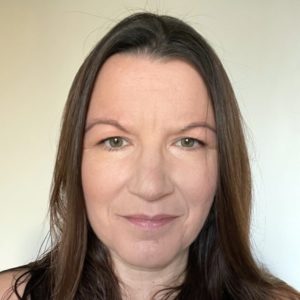
Céline AMIEZ
My research aims at identifying the anatomo-functional organization of cerebral networks involved in high-order cognitive functions and its evolution in the primate order using neuroimaging techniques. web-link
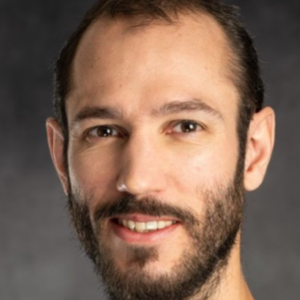
Baptiste BALANCA
My current field of interest is to understand the pathophysiology of the progression of acute brain lesions, in order to identify new markers and therapeutic targets to improve and individualize management strategies. Our team is conducting translational research into several aspects of brain function during acute brain injuries, using data from multimodal monitoring of intensive care patients and preclinical models in rodents and non-human primates, notably studying the role of cortical spreading depolarizations after subarachnoid hemorrhage or traumatic brain injury
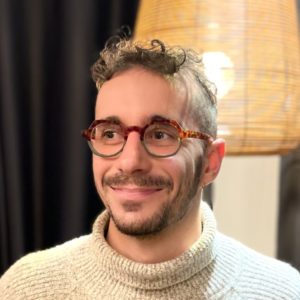
Bertrand BEFFARA
I am a french PhD in cognitive science and current post-doctoral researcher in social psychophysiology and cognitive science. I am interested in understanding the multi-scale biological mechanisms underlying psychological phenomena and the link between low- (e.g. attention) to high- (e.g. social cognition) level cognitive functions. I am also committed to new research practices, scientific integrity and well-being in science
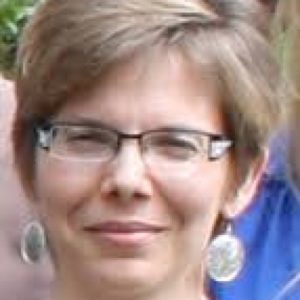
Suliann BEN HAMED
My group studies the neural bases of attention, peripersonal space and multisensory integration in humans and non-human primates using fMRI, EEG and intracortical recordings. We also implement real-time neurofeedback application to enhance cognition and develop cognitive brain machine interfaces
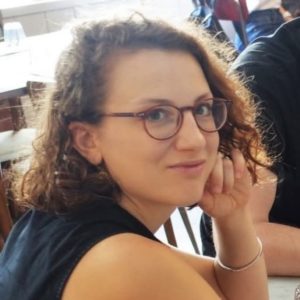
Kim BENEYTON
Specialized in the study of visual perception, I dedicated my PhD to exploring motion and the “predictive brain” model in humans. This work allowed me to develop strong expertise in functional magnetic resonance imaging (fMRI) and image processing. I am currently conducting research on cortical and subcortical anatomy and connectivity in non-human primates, as part of a project to develop a brain atlas. Alongside my research, I write popular science articles for various magazines and enjoy communicating science to a broader audience

James J BONAIUTO
My group studies the neural mechanisms behind motor control and decision-making in adults and infants using MEG, EEG, computational modeling, electrophysiology, and MRI. We are currently focused on the role of beta activity in motor planning and learning, developing techniques to non-invasively interrogate neural activity in different cortical laminae using MEG, and non-invasive decoding of motor imagery for brain-computer-interfaces
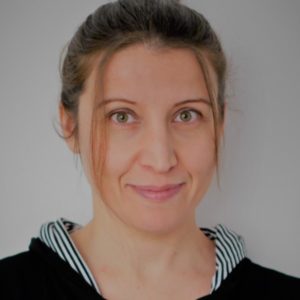
Mathilde BONNEFOND
My research aims at understanding the role of neuronal rhythmical fluctuations and more complex dynamics in implementing local computations and in setting up the communication in brain networks during active sensory perception independently of the modality. In the group, we use a combination of neuroimaging/stimulation techniques, in particular high resolution (laminar) Magnetoencephalography (MEG), laminar fMRI and EEG combined, transcranial alternative current stimulation (tACS). We also analyze monkey electrophysiological data obtained through collaborations. Finally, we have recently started to use computational modeling as well as spiking neural networks
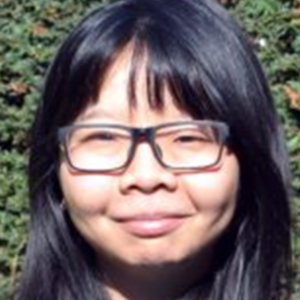
Chiu-Yueh CHEN
My research focuses on understanding how the human brain processes visual and sensory information in everyday environments. Driven by a longstanding curiosity about how the brain handles vast amounts of data through sensory systems, I pursued my studies using non-invasive neuroimaging tools, with a particular emphasis on fMRI
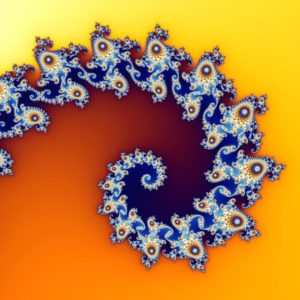
Marion DELOUS
Study of physiopathological mechanisms of genetic diseases. Modelling of human genetic diseases in vitro, in iPSC-derived models and in vivo, in zebrafish. Understanding the role of minor splicing in neurodevelopment, and more particularly how its deficiency leads to microcephaly. Understanding the role of centrosome/primary cilium in neurodevelopment. (future interest) Understanding the role of neuronal activity in neurodevelopment. (future interest) Understanding the role of minor splicing in neuronal plasticity
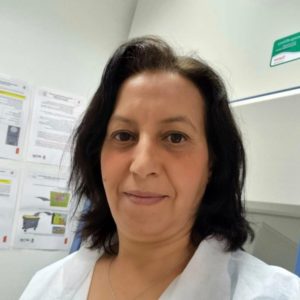
Ouria DKHISSI-BENYAHYA
Research on chronobiological mechanisms: 1) how light entrains retinal and central clocks and determines the molecular mechanisms and the photoreceptors involved in this response during development and in the adult; 2) Neurobiological mechanisms of light in depression. The possible beneficial or deleterious effects of light and the role of melanopsin in mediating this effect will be assess. ORCID
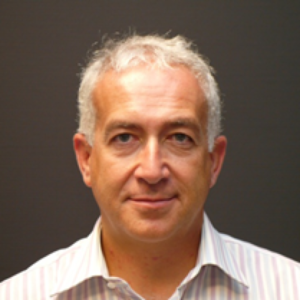
Alessandro FARNE
I am interested into understanding what behavioral and neural processes make humans such highly sophisticated masters in tool-use and tool-sensing. My research focuses also onto both functional and cerebral plasticity in Touch, Multisensory Perception & Action, Body & Space representations. ORCID
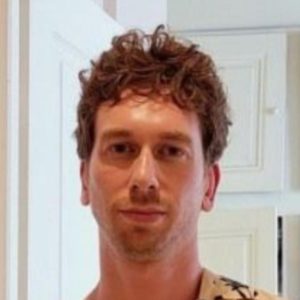
Valentin GUIGON
As a postdoctoral researcher in Cognitive Neurosciences within J.C. Dreher’s team, I study the behaviors and underlying neurocomputations of individuals’ beliefs and decisions in social contexts. My thesis works particularly focused on the processes of forming preferences or inferring others’ preferences for information. Besides decision-making processes, my main interests revolve around designing behavioral paradigms, modelling complex behaviors and the many bridges between scientific fields. You can also find me in movie theaters
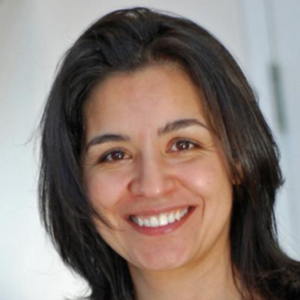
Fadila HADJ-BOUZIANE
My research aims at understanding how we perceive and adapt to the world around us with a focus on social stimuli such as faces. Part of my work is centered on how visual attention, a function at the heart of cognition, allows us to select certain relevant visual information from the environment. Another part of my work focuses on the neural coding of face perception, the influence of facial emotional expressions and their physical proximity. ORCID

Audrey HAY
My scientific interest is to understand the neural mechanisms, at the level of neural networks, that govern the coordination of oscillations during sleep. I am working on mice, using electrophysiology and calcium imaging. For the moment I investigate physiological conditions, but the plan to also look at what happens during physiological and pathological aging

Jean-Rémy HOCHMANN
Main interests : cognitive development, infant cognition, language, reasoning and consciousness

Yujie HOU
I am currently a postdoctoral researcher with the ‘Building the Cerebral Cortex – Connectomics’ team at Stem-cell and Brain Research Institute. My research interest lies in studying the cortical connectome to further understand the structural basis of brain function. I have been specifically focusing on the impact of retinotopic subdivisions of visual areas on shaping the cortical connectome in visually centered non-human primates. I’m also constructing a dense macaque cortical connectome, which involves mapping the connectivity data obtained from retrograde tracers onto cortical surfaces reconstructed from MRI. This approach enables comparisons with various other modalities, including functional MRI (fMRI) and electroencephalography (EEG)

Martijn KERKOFS
My current scientific interests comprise alternative splicing in cortical neurons and the impact of this process during normal and pathological neurodevelopment. In a broader view, I am interested in how subcellular compartments in various cell types in the brain steer neurodevelopment. During my Ph.D., I have worked on mitochondria and calcium in the context of blood cancers, so I have a good view on some aspects of research outside neurobiology as well

Leonie KOBAN
Research interests: Social influences on emotion, behavior, and health; Dietary and health-related decision-making; Conceptual processes, learning, and expectation effects; Mind-body-interactions; Brain imaging (fMRI) and machine-learning approaches
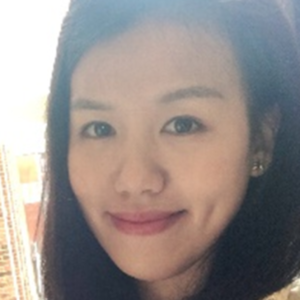
Gaiqing KONG
My research interests include the sense of agency, peripersonal space, self-awareness, human–AI interactions, and causal inference in multisensory perception. I employ various research methods such as psychophysics, behavioural tasks, and techniques using Virtual Reality, robotic devices, EEG, EMG, and motion tracking

Clément Emmanuel LEMERCIER
My research revolves around two main axes, how arousal and brain states influence decision-making processes and the dynamics of corticothalamic networks involved in sustained olfactory attention. To explore these questions, I combine non-invasive measures of arousal (pupil and respiration), behavioral assays, and multichannel in vivo extracellular electrophysiology
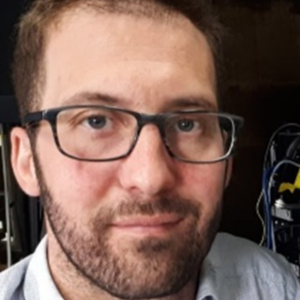
Vincent MAGLOIRE
We are interested in how different cell types, and the neurochemical environment they create, regulate brain excitability in paroxysmal disorders. We employ multisite photometry, miniscope, and two-photon microscopy in combination with electrophysiology in ex vivo and in vivo mouse models web-link

Quentin MOREAU
Postdoctoral researcher in Neuroscience at the Decision, Action, and Neural Computation (DANC) lab led by Dr. James Bonaiuto, Institut des Sciences Cognitives (ISC)

Pauline MOUCHES
My main research interest is to develop computational methods using machine learning, image and signal processing, and other data analysis tools to understand better neurodegenerative diseases and improve diagnosis. My current project consists in automatically detecting events in neural recordings of epilepsy patients
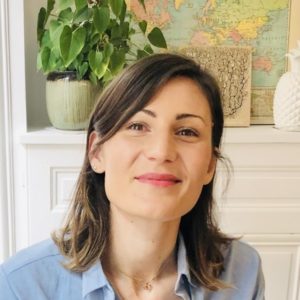
Liuba PAPEO
We study how the ensemble function of cognitive processes and cortical networks gives rise to high-level cognitive processes, such as object and action recognition, social cognition, language, reasoning and consciousness. We characterize human cognition in its developmental, computational and neural aspects, by studying infants from 3 months, children and adults, and the differences between human populations (neurotypical versus autism) and across species (humans versus monkeys), using a variety of methodologies ranging from psychophysics and behavioral tests, to eye-tracking, EEG, neurostimulation (TMS) and functional MRI

Benjamin PASQUEREAU
My research interests—spanning both clinical and preclinical domains—center on the interplay between dopamine and serotonin in the regulation of motivation, emotions, and self-control. Despite their well-established roles in these processes, how dopamine and serotonin interact to modulate adaptive behaviors remains an open and largely unresolved question. Moreover, both neurotransmitter systems are implicated in a wide range of psychiatric disorders and their treatments, yet their distinct contributions are still not fully understood and require further disentanglement

Christelle PEYRON
Main research areas: sleep, animal research, development of animal model of sleep disorders, narcolepsy. Technical approaches: EEG/EMG, neuronal circuits, neuroanatomy, multi-units recordings and transcriptomics
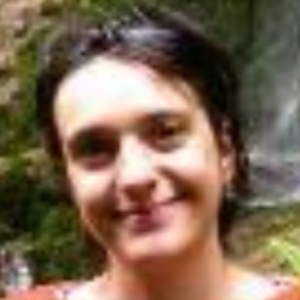
Bérangère PINAN-LUCARRE
Synapses are specialized sites of cell communication that connect neurons in vast networks. Very specific sets of molecules, including adhesion and scaffolding molecules, control their formation and their properties. The projects I have developed aim at identifying new molecular mechanisms that control the formation and function of synapses. To achieve this, I use genetics and cell biology approaches in the nematode Caenorhabditis elegans. More specifically, I conduct genetic screens to isolate mutant worms with defective synapses. This approach is very powerful to discover new synaptic genes, that also play critical role in the human brain
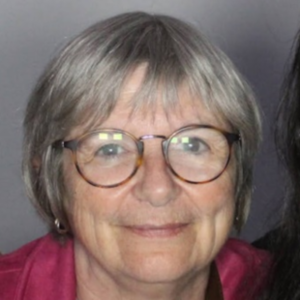
Nadine RAVEL
My research concerns the study of the neurobiological basis of memory. I am particularly interested in episodic memory, which I study in rodents and humans. I am currently focusing my research on understanding how memory functions in more ecological contexts: in human museum visits and in semi-natural accommodation in rodents. My preferred techniques: behavioural studies and recording intracerebral activity in behaving subjects

Véronique SGAMBATO
Pathophysiology of motor and non-motor symptoms of Parkinson’s disease, combining a clinical approach in patients and a preclinical approach in animals
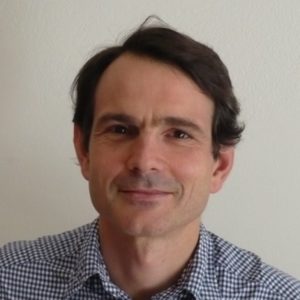
Laurent SEUGNET
My research interests: molecular genetics, cellular neurobiology, metabolism, glial cells, circadian rhythms, sleep/wake. web-link
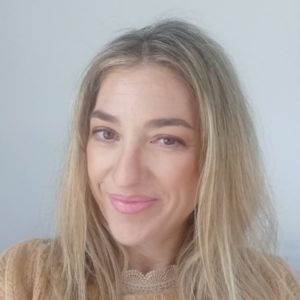
Amélie SOUMIER
How do we go from two pounds of brain to thought, emotion, memories, decisions and actions ? Everyday we know a little more about synapses, neurons, neural circuits development, but in spite of that, we still don’t know how to put the pieces together in the right way to form a simple model. I have always been interested in the field of mental disorders (anxiety, stress, depression, and autism). I work with techniques such as opto- and chemo-genetics to manipulate selective cells and circuits, which use light and chemicals to respectively toggle neural activity and behavior in rodents. I also use light-sheet 3D imaging to map neural maturation during early brain development. Another interest of mine is the emerging field of participatory research, and one of my projects is to connect researchers with autistic community members interested in shaping autism research. web-link

Nadia URBAIN
My research focuses on understanding how motor control on the information flow and sensory processing operates at the level of the thalamus. To this end, I use the anatomically well-defined mouse somatosensory system as a model. My projects take advantages of state-of-art electrophysiological methods combined with optogenetics and virus technologies in head-fixed mice. web-link
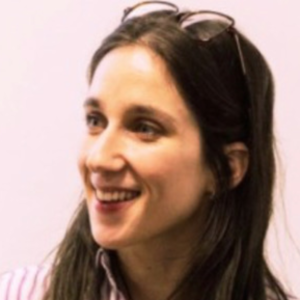
Marine THIEUX
I have a Ph.D. in clinical neurosciences, and I currently work as a postdoctoral researcher in the EDUWELL team of the Lyon Neuroscience Research Center. My research mainly focuses on attention and vigilance in children, studying physiological and pathological sleep, sleepiness and epilepsy, using electrophysiological techniques (EEG, sEEG). I am also very interested in statistics, methodology, and how to improve our research practices
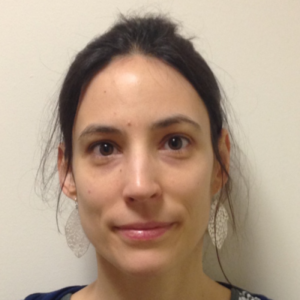
Marine VERNET
My research aims to explore the neural substrate of human consciousness, including the sense of agency (feeling the agent of our own actions), visual awareness (subjective sensation of perceiving) and spontaneous thoughts. For this, we use a combination of techniques including psychophysics, interviews, electroencephalography (EEG) and magnetoencephalography (MEG) and brain stimulation
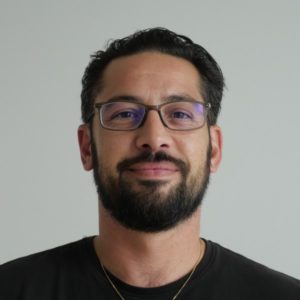
Julien VEZOLI
Working at the Stem-cell & Brain Research Institute (SBRI) in the team Building the Cerebral Cortex (dir. Dehay/Kennedy, group Connectomics Kennedy/Knoblauch), we investigate information processing in cortical networks underlying visual perception and both human and non-human primates (NHP). My research projects aim to provide a detailed cellular and laminar description of the neuronal properties of the distinct interareal feedforward and feedback pathways and to characterize their functional role in hierarchical processing for the transmission of sensory and cognitive information. web-link

Charlie WILSON
I study learning to learn and motivation, and I am particularly interesting in the way these functions are implemented in frontal cortex, mainly using electrophysiological recordings in monkeys. I also work on the neurophysiological properties of frontal cortex, and neural oscillations – how we analyse them and what they mean. I have also developed DREADDs in monkeys for modulating specific neural pathways in the monkey brain. I also had a prior career outside science, in finance, before committing to research. So as a mentor I can bring perspectives on this sort of career switch. ORCID and web-link
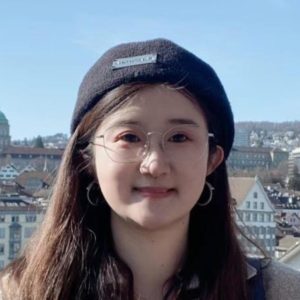
Siqi ZHANG
I’m a postdoc working with Dr James Bonaiuto at the Decision, Action, and Neural Computation (DANC) lab, part of Institut des Sciences Cognitives Marc Jeannerod in Lyon. My current research directions are mainly in the neuroimaging processing methods and motor control behaviors. web-link
